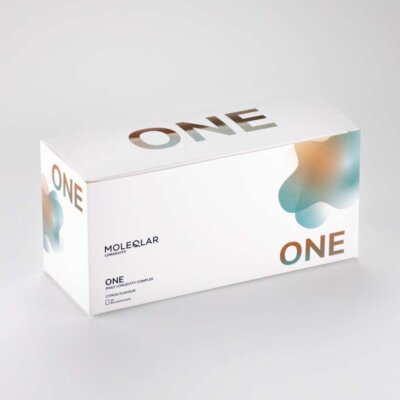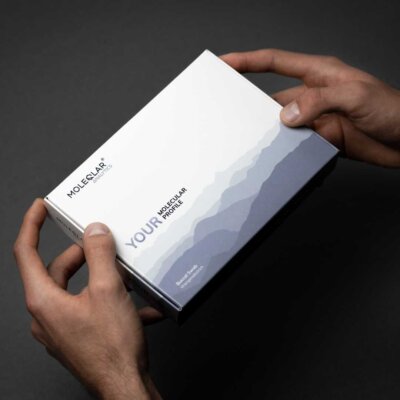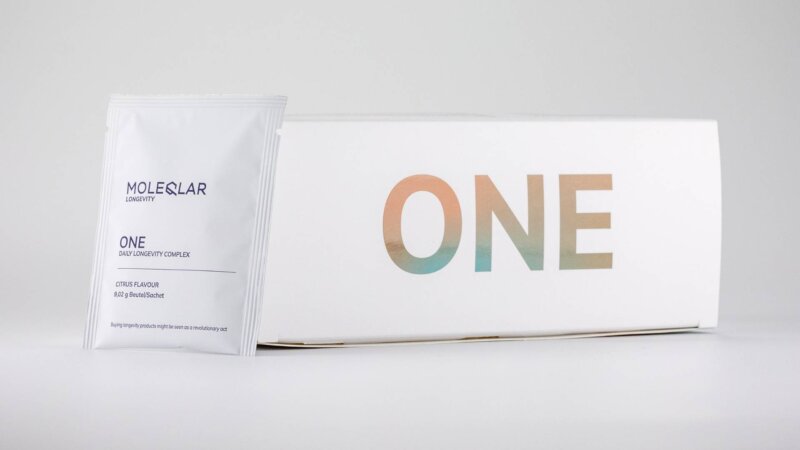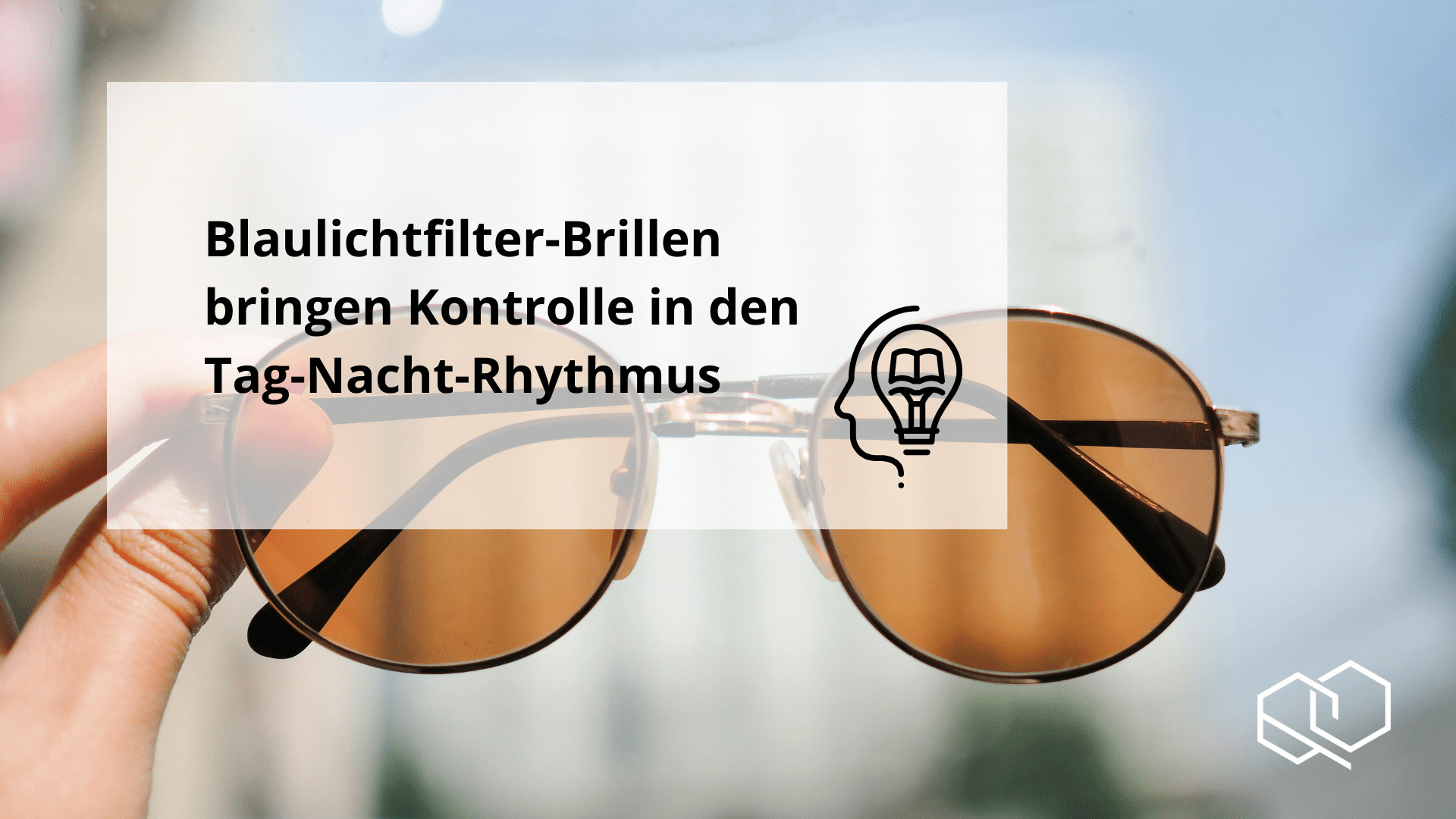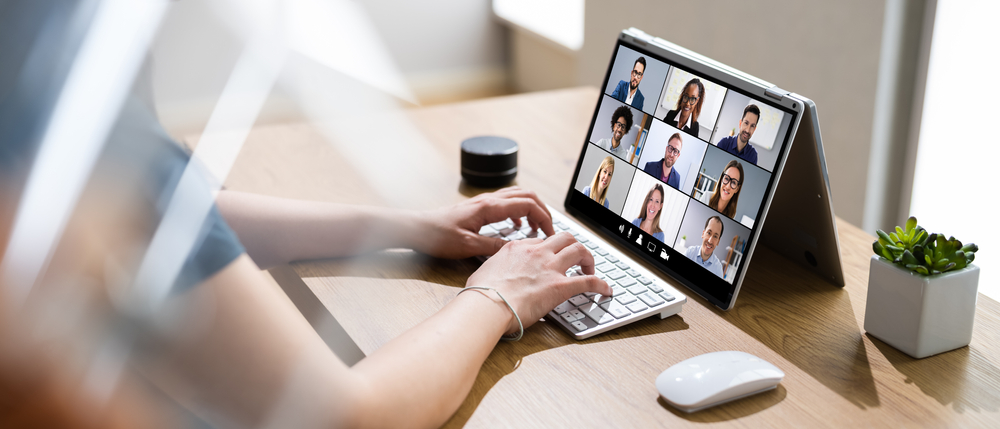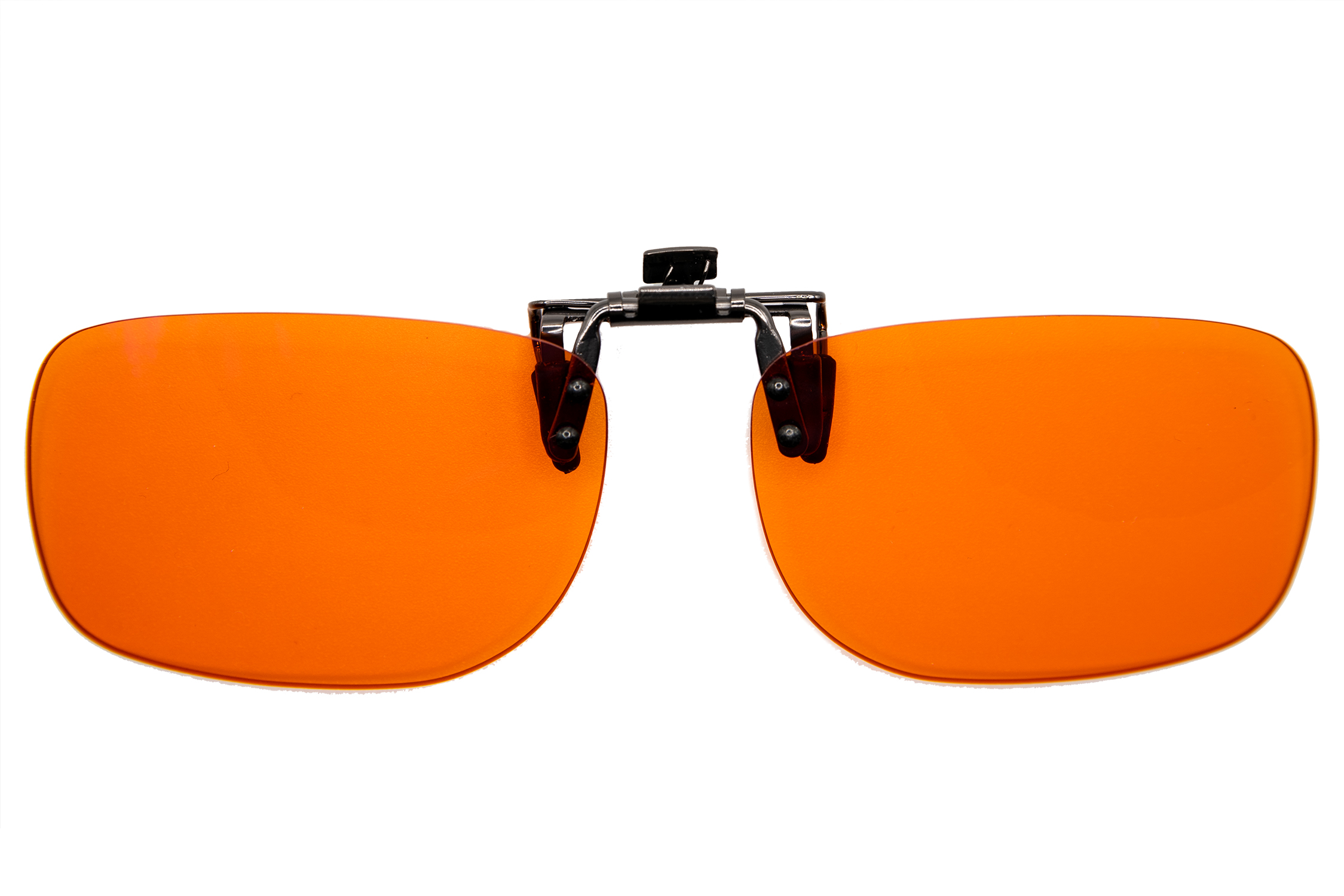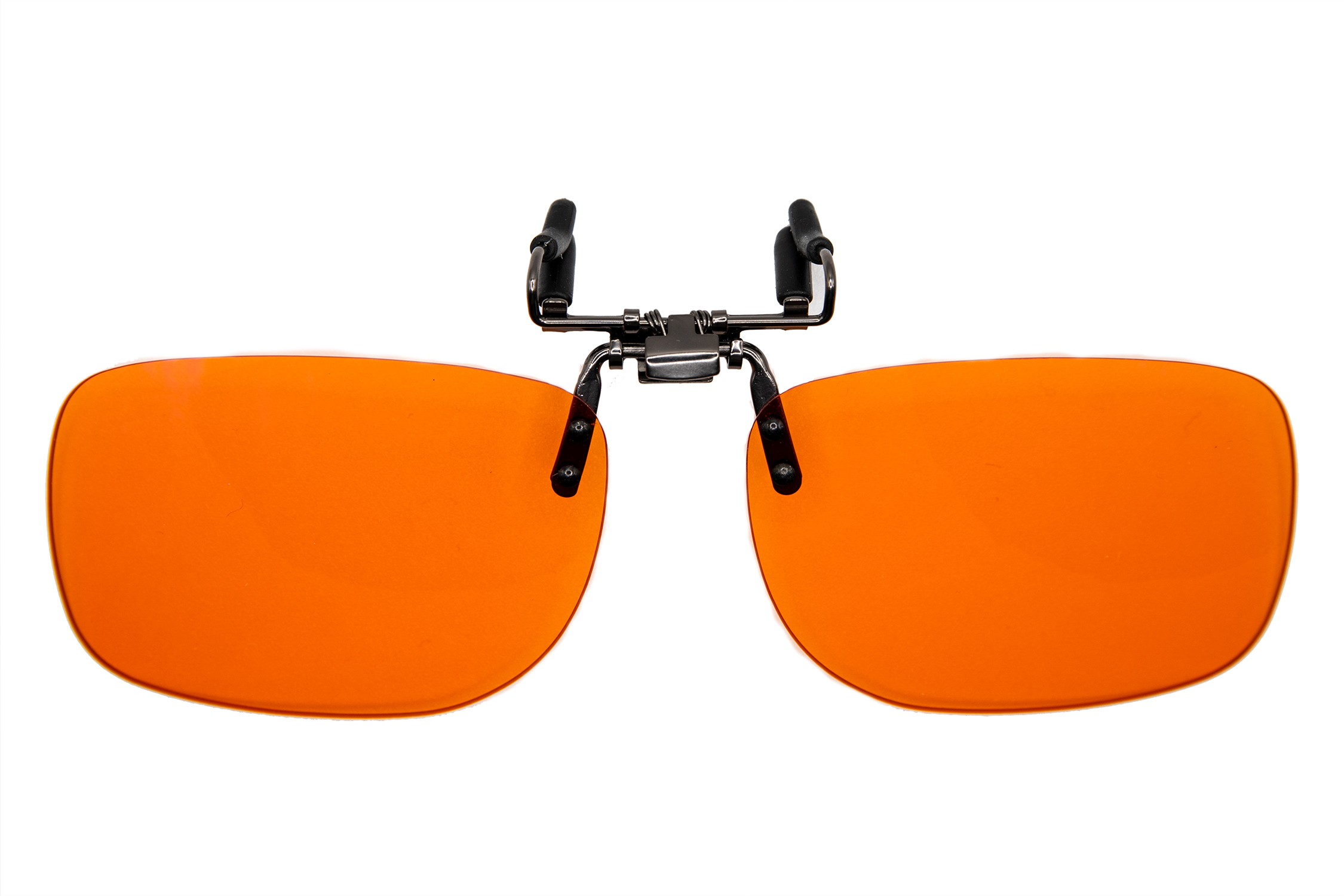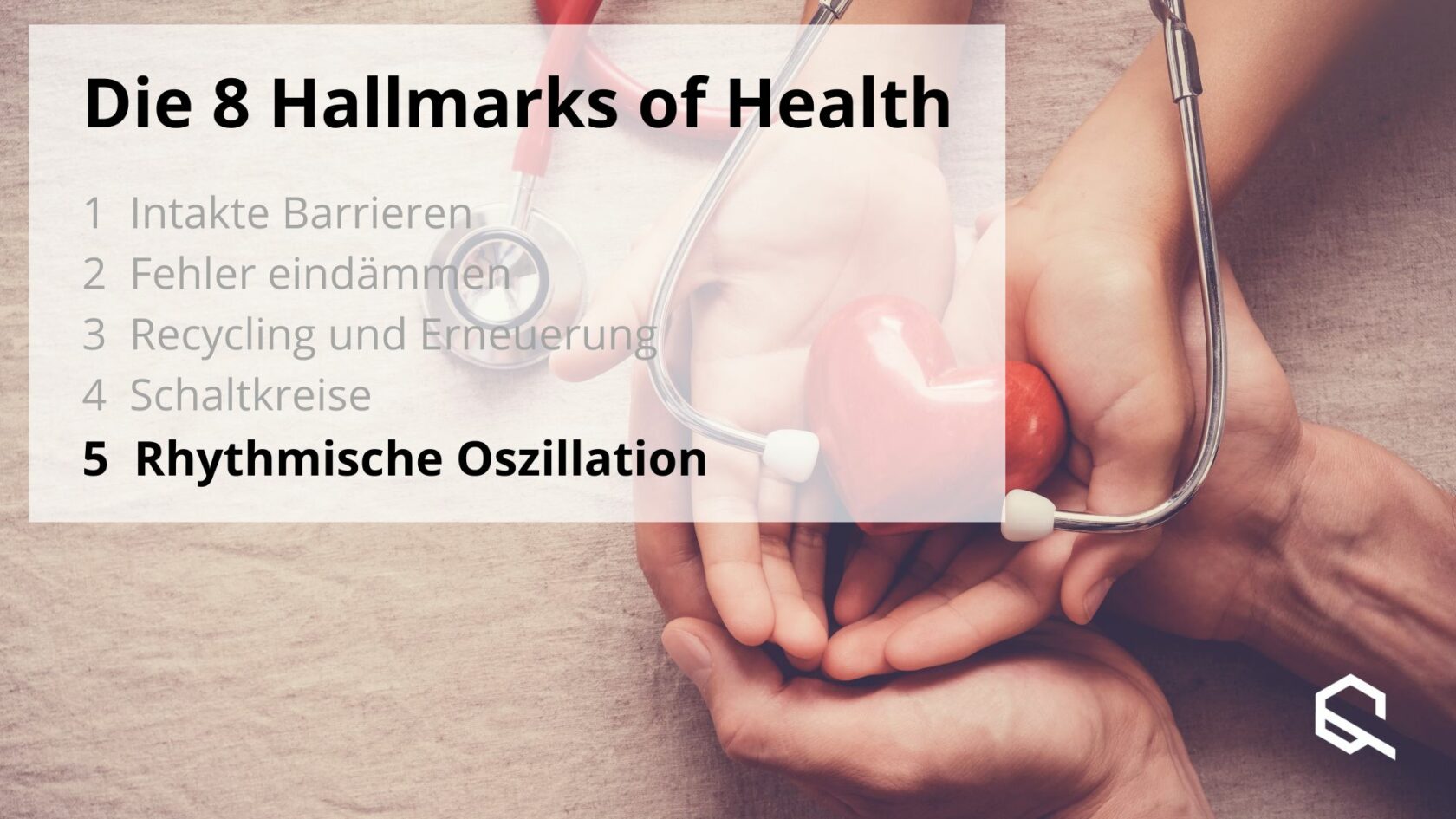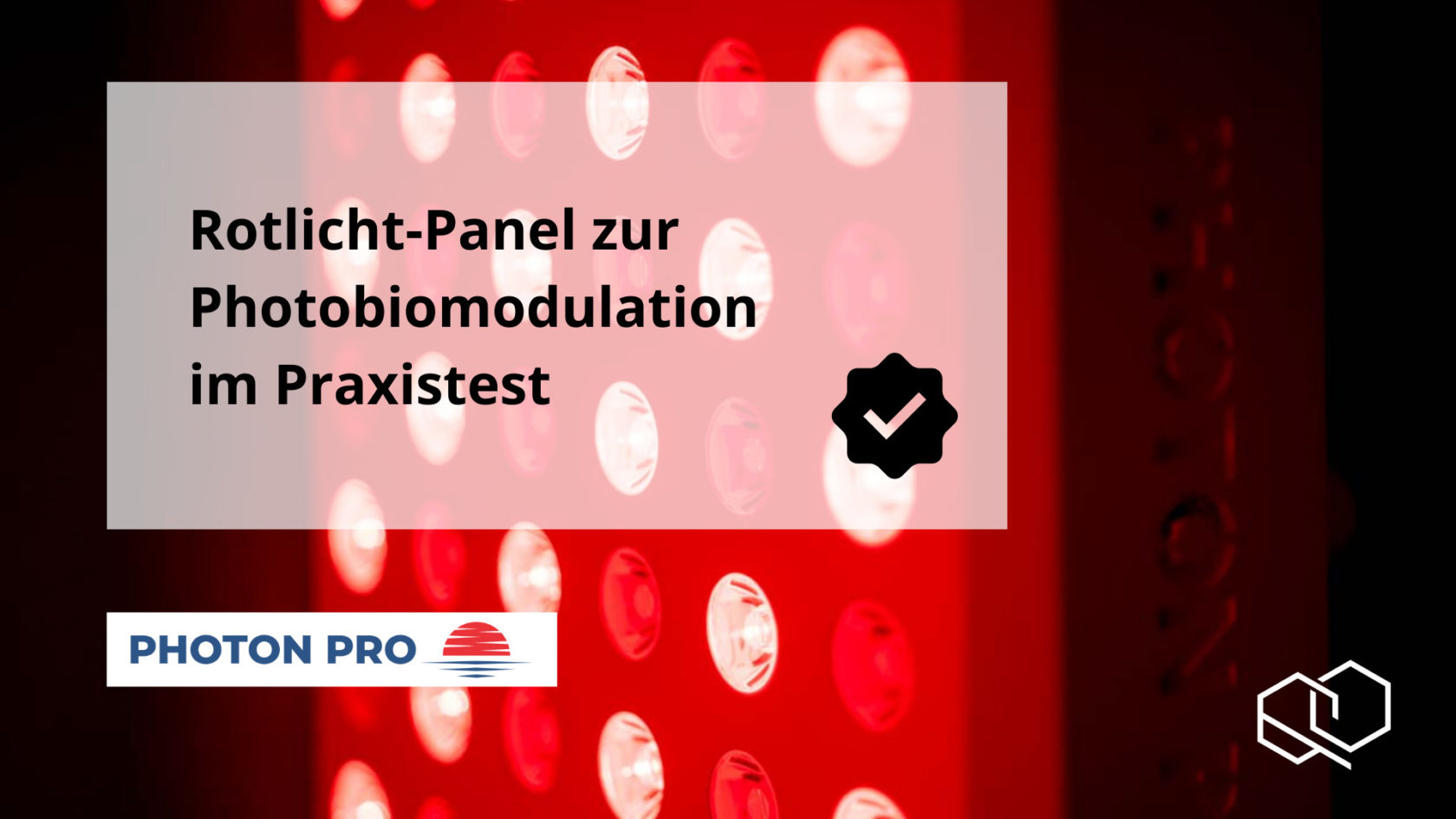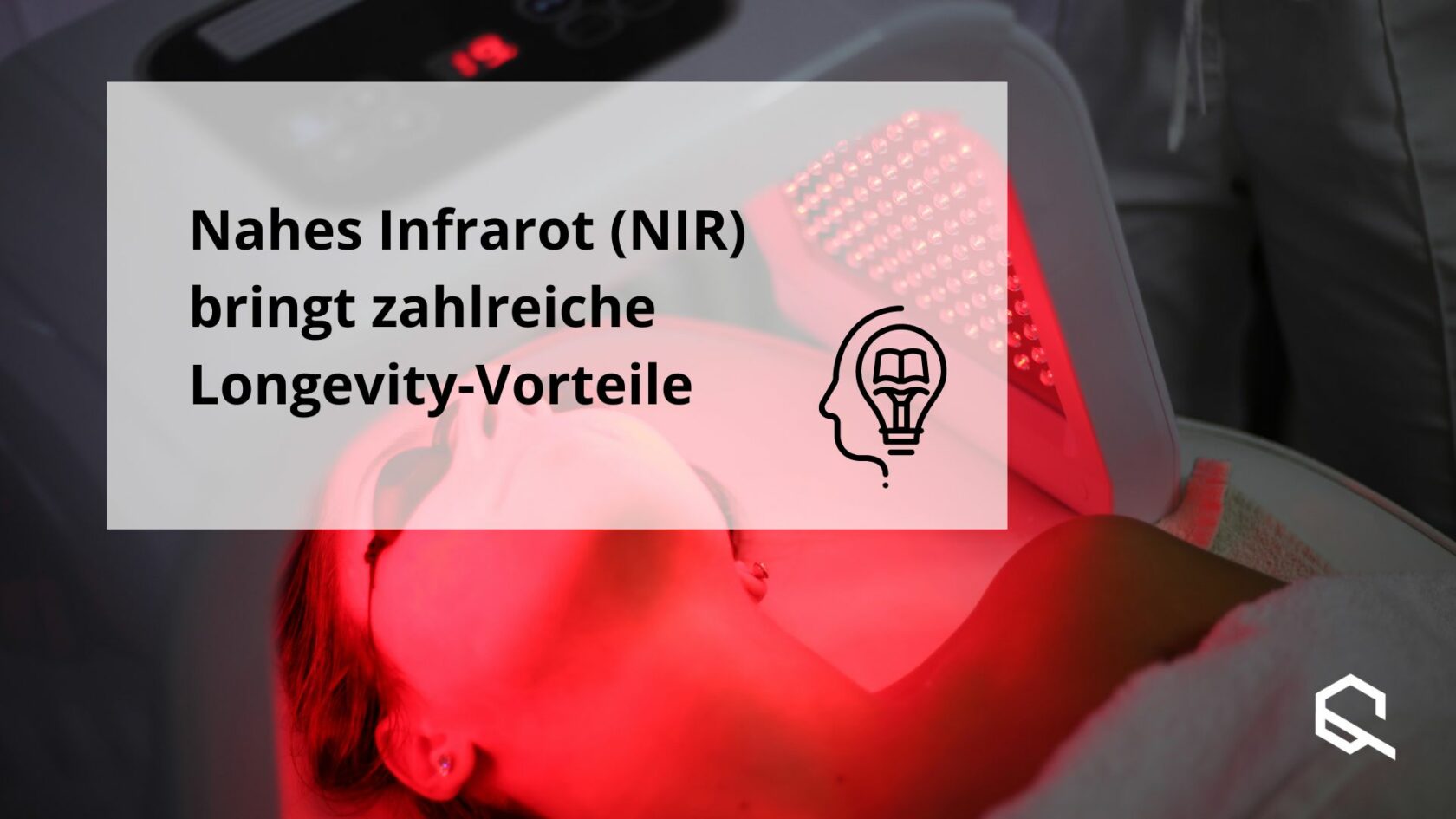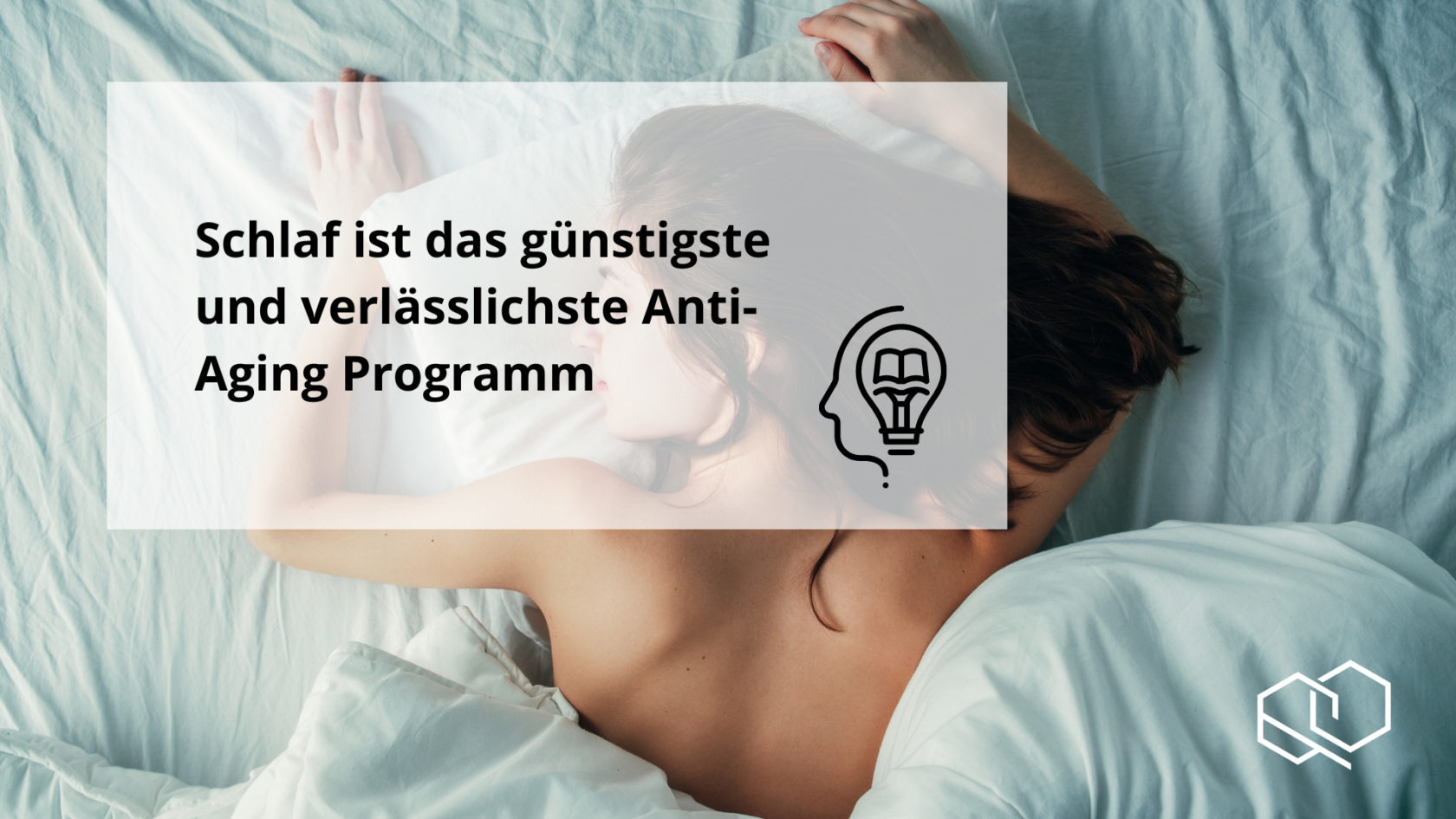In 2017, the Nobel Prize in Medicine and Physiology was awarded to three chronobiologists who worked on the molecular mechanisms of circadian rhythmicity. Jeffrey C. Hall, Michael Rosbash and Michael W. Young secured the prestigious award with research results from 1984 and 1994.
At first, this sounds like material for Günther Jauch and "Who wants to be a millionaire". However, the following text explains to what extent this topic concerns everyone and how you can bring control into your circadian rhythm with a simple tool.
Inner clock - the circadian rhythm
The circadian rhythm refers to our inner clock and thus to all processes that keep us in a 24-hour rhythm (circadian = approx. one day). Processes such as eating habits, body temperature, sleeping patterns and hormone regulation play an important role here. Above all, the release of the hormone melatonin from the pineal gland is significantly involved in sleep-wake regulation. We will discuss the circadian rhythm in more detail in another article. The effects of our circadian rhythm are evolutionarily anchored in us and have offered a survival advantage over millions of years through permanent adaptation to external living conditions.
Light and the melatonin level
Our body is perfectly capable of reacting to light. When it gets darker, more melatonin is released, which promotes sleep and subsequently makes us tired. You notice this particularly well when the season changes from a long bright day to a short dark day. In autumn and winter you certainly feel tired more often than in summer, which can be explained physiologically: your body releases melatonin earlier.
Another example is jet lag after a long flight with a change of time zones. Here, too, the inner clock plays an important role. Due to the shifted time, the body is either kept awake "unnaturally" by longer exposure to light, or melatonin is released earlier because it is already dark on site.
In a previous article we explained how much benefit a good sleep rhythm has for us humans. So rhythm is again very important in this article.
Increasing screen time
According to a survey from the USA, American adults look at a screen for almost eleven hours a day. In Germany, according to a Bitkom survey, it is currently around ten hours.
Why are we telling you this? Due to increased digital work, many people's screen time has increased dramatically in recent decades. The Corona pandemic has also greatly accelerated this trend. This increase also has effects on life that are not directly comprehensible. For example, screen light affects your circadian rhythm and you are kept awake longer in an unnatural way. The reason for this is the delayed or reduced release of melatonin.
Why does blue light discourage sleep?
As explained at the beginning, our body reacts very sensitively to external light conditions. Light consists of a spectrum of different light colours that show up collectively as white light: Red, orange, yellow, green, blue and violet. Darker colours like blue and violet have a short wavelength (nm) and at the same time high energy (eV): blue 430-490 nm with about 2.65 eV and violet 380-430 nm with about 3.1 eV. Orange, on the other hand, has a long wavelength of 600-640nm and lower energy of about 2 eV.
The short wavelength and high energy make it easier for the light to penetrate our eyes through the cornea and lens and thus create a physical reaction. The high-energy blue light subsequently minimises our natural melatonin secretion. However, blue light is also found quite normally in daylight and has physiological effects on the body here. After all, we are supposed to be awake and stay awake during the day.
Screens of any kind usually have a much higher proportion of blue light. The longer you look at screens in the evening, be it your smartphone or your TV, the longer the release of melatonin is inhibited. This makes it harder for you to fall asleep. And as you've already learned, sleep is the most efficient and beneficial anti-ageing programme.
What options do you have if you need to do some screen work in the evening or want to watch a film with friends?
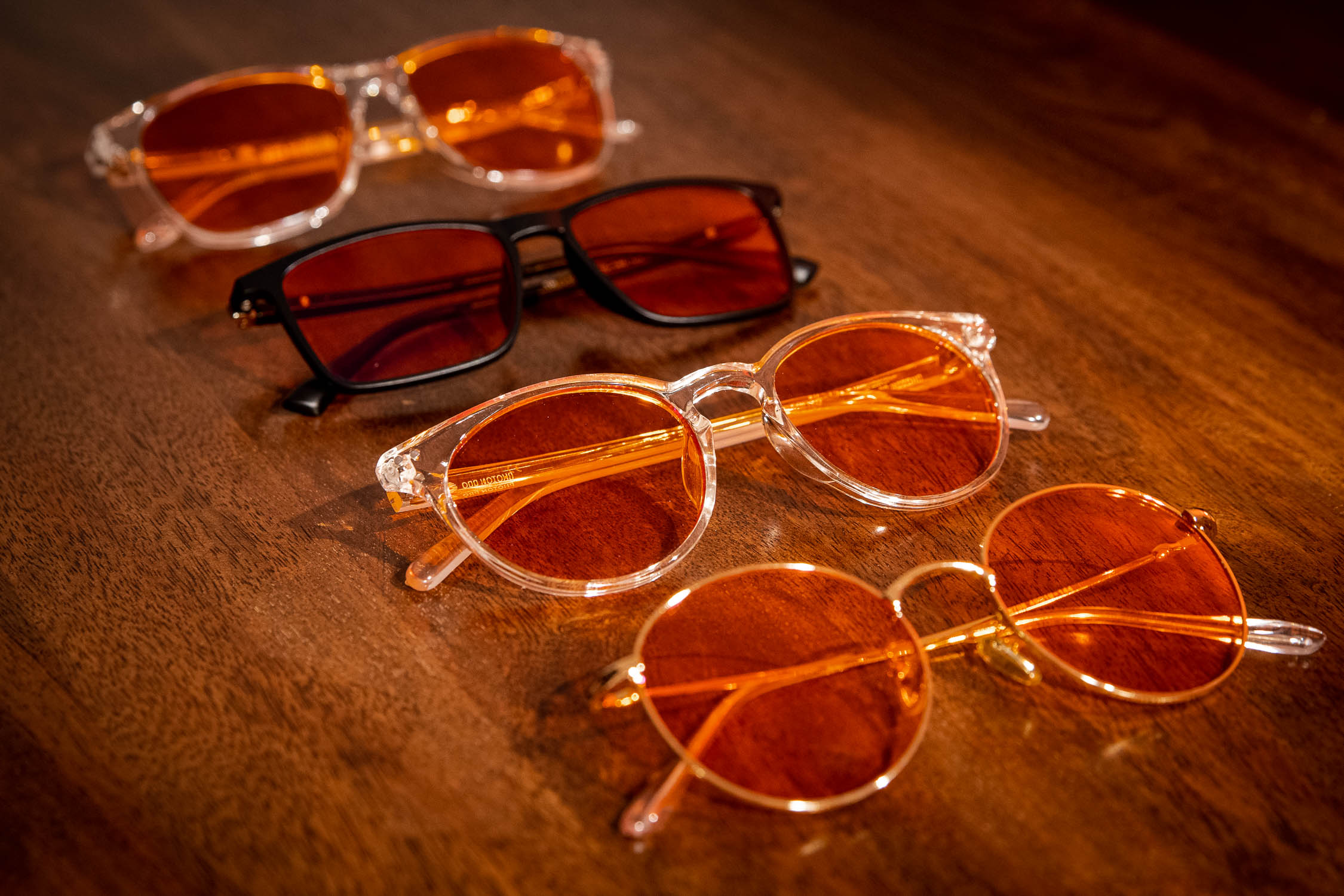
Technical remedy - the blue light filter glasses
Blue light filter glasses have proven to be a very useful aid. Depending on the filter, they are able to block blue light to varying degrees. They thus ensure that your melatonin secretion is not inhibited as much. The effects have also been scientifically proven.
A study with college students tested the actual effectiveness of blue light filters using three different groups, all sitting in front of a monitor in the evening. One group sat in front of the monitor without glasses, one with blue light filter glasses and a third group with glasses that block orange light. In all groups, the melatonin level was determined by means of a saliva test. The results were groundbreaking. The group exposed to blue light only had the lowest level of melatonin and the group with the blue light filter had the highest melatonin level.
Other studies examined the effect of blue light in the morning and also came to a result that supports the theory. Blue light in the morning makes people more alert, which the people tested could also perceive subjectively. To get going more easily in the morning, daylight lamps prove to be helpful.
Furthermore, a New York study with blue light filters found a result in people suffering from sleep disorders: insomnia and quality of life improved and stress levels decreased.
How to wear your blue light filter glasses correctly
For a natural melatonin release and thus a good night's sleep, it is recommended to wear such blue light filter glasses as soon as it gets dark outside. This way, the circadian rhythm is not disturbed and you can get up refreshed and healthy the next morning.
There is now an overwhelming selection of blue light filter glasses on the internet. A distinction must be made between the different filter levels. Glasses that block more than 99% of blue light have a significantly greater effect on melatonin secretion than those that block only 20%.
If you already wear optical glasses, a so-called clip-on could be a cost-effective solution. You can easily attach them to your existing glasses. Alternatively, optical glasses with integrated blue light filters are also available in specialised shops.
Blue light filter glasses from PhotonPro
We personally tested the BERLIN NIGHT and NEW YORK NIGHT models from the German supplier PhotonPro. The glasses are delivered to your home very quickly by post in an economical cardboard box. Included in the delivery is a nice case, the glasses in an additional protective plastic cover and a branded cleaning cloth.
Test conclusion: In addition to a subjectively better sleep, we had the feeling that the eyes were not so strained during late screen work. Moreover, dry eyes were significantly less dependent on moisturisation than without the blue light filter. In any case, one disadvantage is the strong orange colouring of the image. This is not important when working with office programmes, but it can reduce the quality of a film evening. Alternative glasses with a lower filter effect are available here.
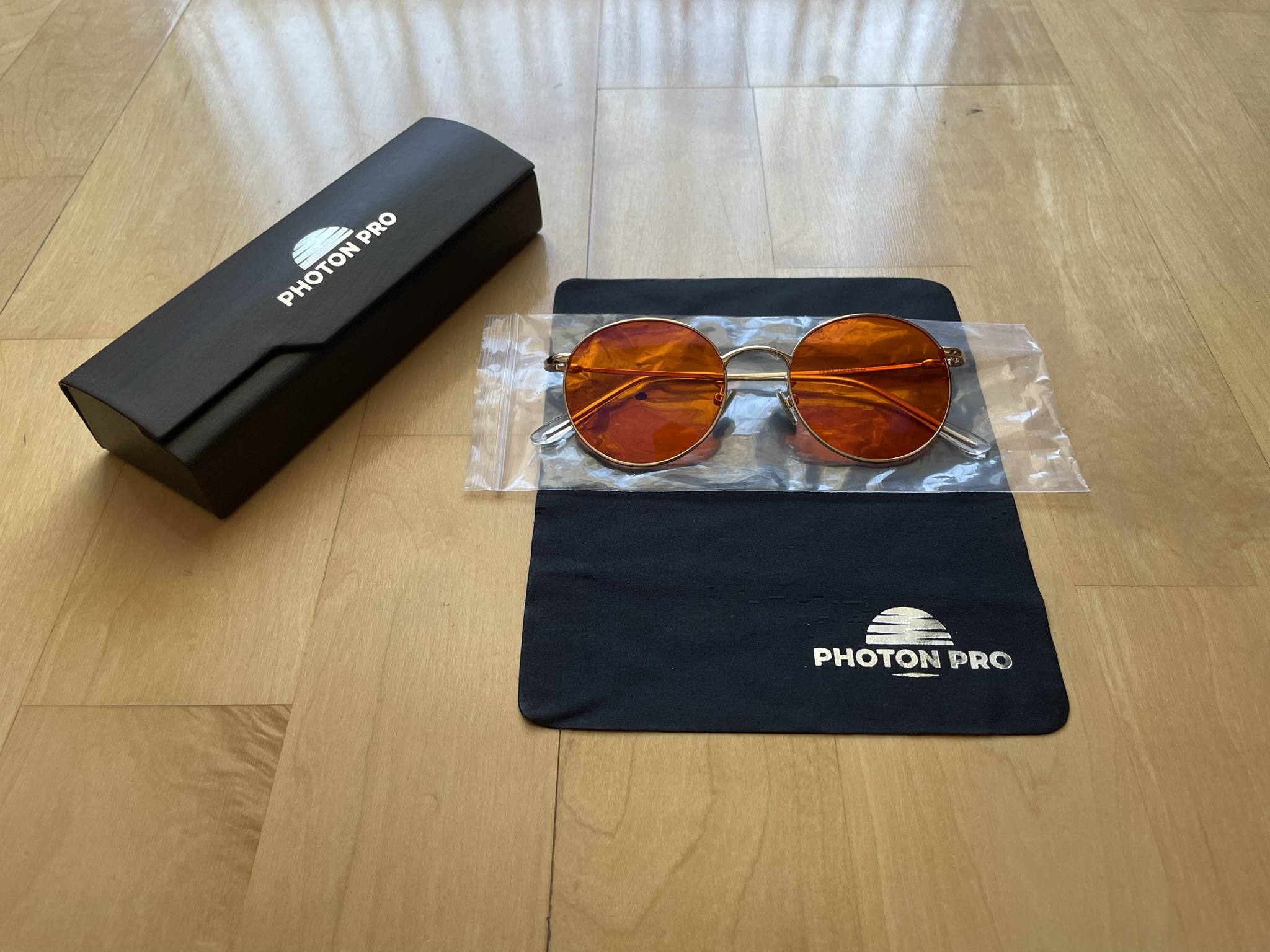
Literature:
https://www.bitkom.org/Presse/Presseinformation/Zwei-Jahre-Corona
"Sleepless with blue light", Prof. Dr. Dr. Spitzer, Ulm University Hospital
https://gmj.sljol.info/article/10.4038/gmj.v11i1.1115/
https://utheses.univie.ac.at/detail/52572#
https://pubmed.ncbi.nlm.nih.gov/32658494/
Graphics:
The images have been acquired under licence from Shutterstock.com and Canva and are marked accordingly.
